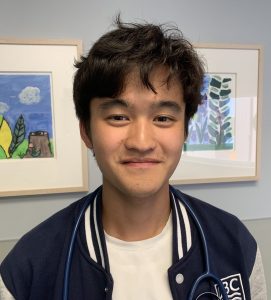The UBC Department of Physical Therapy is participating in the Vancouver Summer Program (VSP) this summer!
Join us for 4 weeks this summer and learn about Canadian health and life sciences.
We are excited to invite undergraduate students to join our UBC Faculty of Medicine Vancouver Summer Program focused on medicine, healthy aging, and “movement is medicine.” This four-week academic program offers Canadian and international students a unique opportunity to experience Canadian health and life sciences at its best. Students will study under leading faculty in health sciences and will collaborate with peers from around the world, building skills and connections for their future careers.
Application Deadline: April 25, 2025
(extended from April 4, 2025)
We are offering two packages this year – Package H and Package L:
Package H – Understanding the Treatment and Recovery from Injury and Chronic Disease
Recovery from Injury and Disease
This course will introduce students to the science of rehabilitation within the World Health Organization framework. Through this approach, students will understand how severe injuries and chronic diseases can impact the patient and family, both physically and emotionally across the full lifespan. Conditions such as spinal cord injury, stroke, arthritis, and chronic obstructive pulmonary disease will be used to illustrate the journey through rehabilitation, the road to recovery and adjustment to disability. Along this journey, students will be introduced to concepts about the musculoskeletal, cardiovascular, pulmonary, and neurological systems, as well as coping mechanisms and quality of life.
In addition, cutting-edge research on novel rehabilitation treatments will be introduced, including robotic suits to permit walking after spinal cord injury and e-Health (e.g., tele-medicine, video games, wearable sensors) to improve function. Students will use a variety of interactive methods to understand the content, including small group tutorials, and problem-based learning.
Exercise is Medicine
This course will provide an exploration of exercise and physical activity in the treatment of chronic conditions. Through an exploration of chronic conditions such as cancer, cognitive impairment, and musculoskeletal disorders, students will gain an appreciation of the effects of exercise on brain function, bone and muscle health, and cardiovascular function across the lifespan. Topics will also include the epidemiology of physical inactivity, measurement of physical activity in chronic disease, strategies to get a nation and the community more active, the role of health professionals in physical activity prevention and treatment, and technology to motivate and deliver physical activity in chronic disease populations.
Students will use a variety of interactive methods to understand the content, including case studies, hands-on physical activity measurement sessions, and problem-based learning. Students will also complete hands-on labs in a state-of-the-art fitness and exercise research facility designed to enable access for people with chronic disease and disability.
Prerequisites: This package will be at a level suitable for students who have completed an undergraduate-level Biology or Physiology course.
Minors (students aged under 19 at the start of the program): Not Accepted
Package L – Biological and Clinical Aspects of Aging
Biological Aspects of Aging
This course focuses on the biological underpinnings of aging and their individual and societal implications. It will explore how age-related changes in organs, cells, and tissues impact an individual’s mobility, cognitive function, and brain health. It will also discuss the biology of common age-related impairments in mobility, brain health, and cognitive function. Students will experience a variety of interactive methods to understand the content, including practice-based learning in laboratories, group presentations, and case studies. The group presentation component will allow students to practice critical appraisal of research evidence on biological aging through a scientific conference format presentation and peer evaluation. Students will also visit several state-of-the-art research laboratories and assessment suites at the Centre for Aging SMART to gain hands-on experience.
Clinical Aspects of Aging
This course will introduce clinical aspects of age-related impairment in mobility, brain health, and cognitive function. It will also focus on how lifestyle behaviours performed within the 24-hour day (e.g., physical activity, sedentary behaviour, and sleep) can promote healthy aging. A multidisciplinary group of researchers and clinicians will teach lectures and laboratories and lead visits to clinical facilities to expand students’ understanding of healthy aging. The course will include classroom lectures, hands-on laboratory sessions, group-based coursework, and group presentations. An interdisciplinary group of researchers and clinicians will participate in the course as invited lecturers and provide examples of clinical research in aging conducted at UBC and other academic institutions. With visits to clinical research facilities and state-of-the-art assessment suites, this course will allow students to participate in an interdisciplinary and rich environment to foster learning on contemporary topics of clinical aspects of aging.
Prerequisites: No prerequisites
Minors (students aged under 19 at the start of the program): Not Accepted
UBC’s Vancouver Summer Program in Medicine brings students together from across the globe

“The thing I enjoy most about this program is how all-encompassing it is,” said Lucas Ng, a third-year medical student from Hong Kong. “You deliver research proposals, work with people of different backgrounds and engage in clinical skills. Here in the simulation centre, you can do activities you don’t do in early stages of medical school, like intravenous skills. It’s a lot of personal development.”